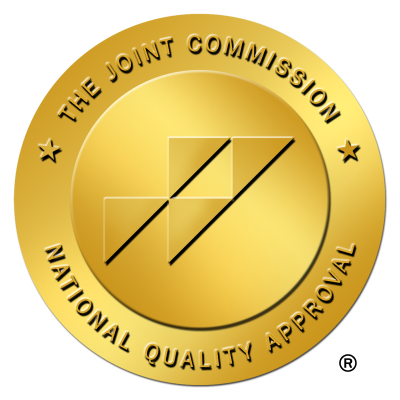How Gardening Can Support Addiction Recovery

Introduction
Gardening, often cherished for its aesthetic appeal and nutritional bounty, is gaining attention for its profound ability to aid addiction recovery. As individuals struggle with the challenges of overcoming substance abuse, engaging in horticultural activities presents a unique pathway towards healing. This article explores the multifaceted benefits of gardening in recovery, from emotional wellness to community support, underscoring the transformative power of nurturing nature.
Therapeutic Gains from Gardening in Recovery
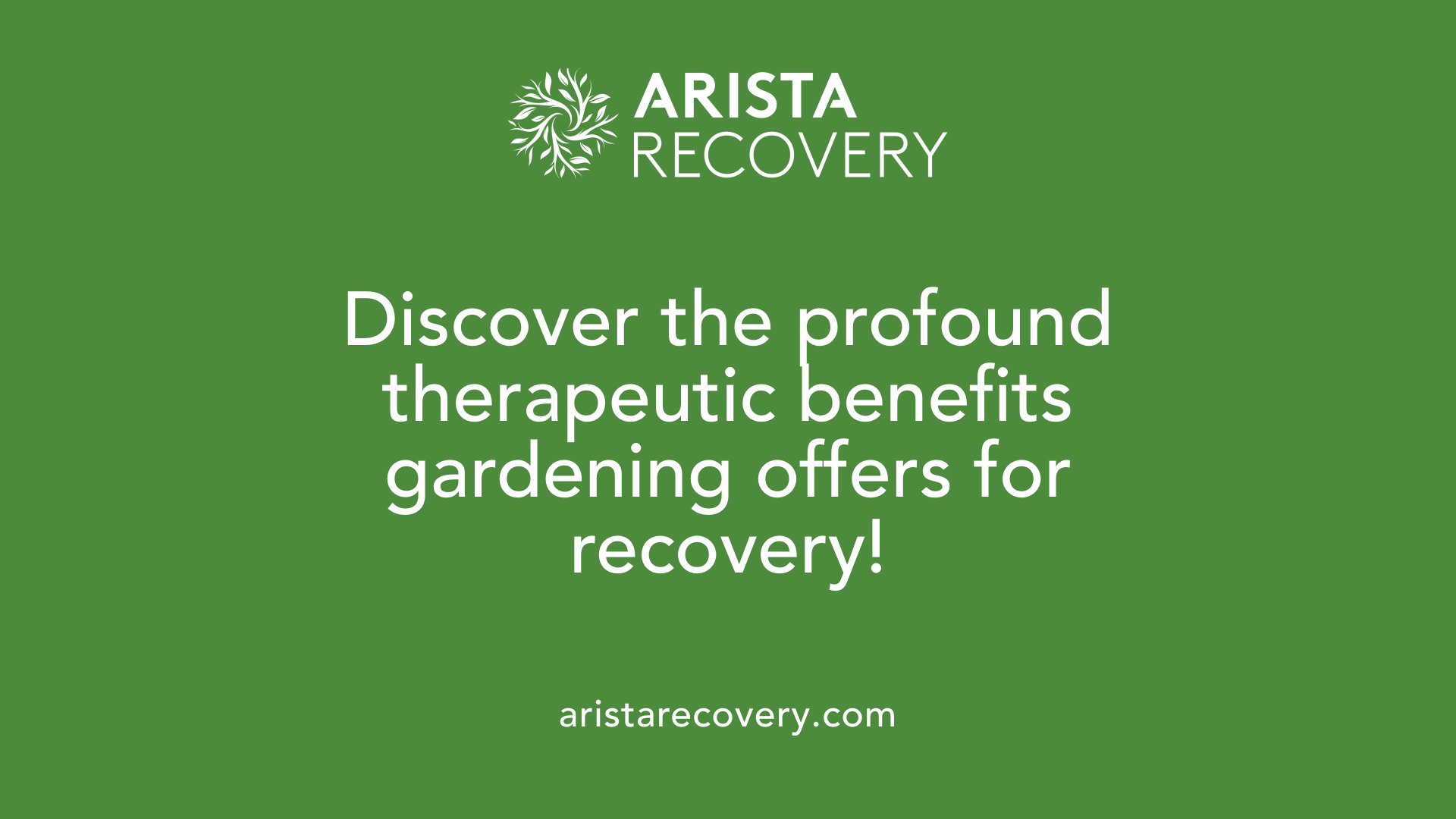
What are the therapeutic benefits of gardening for individuals in recovery?
Gardening offers a wide array of therapeutic benefits for individuals recovering from addiction. It significantly aids in stress reduction, leading to improved mood and emotional well-being. By being engaged in gardening, individuals can experience a sense of accomplishment as they nurture plants, which in turn enhances their self-esteem and confidence.
Therapeutic gardens are designed to support those experiencing trauma and various sensory challenges. They often include features like sensory pathways and wheelchair accessible beds to promote inclusivity and engagement among users. Notably, a garden therapy program launched in 2023 has established four therapeutic gardens that serve over 1,900 individuals each year, reflecting the profound impact of such initiatives.
How does gardening impact stress, mood, and physical health?
Participating in gardening acts as a natural stress reliever, significantly lowering cortisol levels and promoting relaxation. The physical activity involved not only helps improve overall fitness but also releases endorphins, which can elevate one’s mood. Furthermore, research shows that active engagement in nature helps reduce symptoms of anxiety and depression, crucial for maintaining sobriety.
What are specific features of therapeutic gardens?
Therapeutic gardens are uniquely designed to cater to various needs:
| Feature | Description | Benefits |
|---|---|---|
| Sensory pathways | Paths with different textures and smells | Stimulates senses, promoting mindfulness |
| Wheelchair-accessible beds | Garden beds designed for all accessibility | Ensures everyone can participate |
| Educational programming | Workshops and sessions focused on gardening skills | Enhances knowledge and coping strategies |
| Community engagement | Involvement of local groups for support | Builds relationships, reduces isolation |
Such gardens not only foster individual growth but also serve as communal spaces that enhance connections, vital for individuals on their recovery journey.
Emotional and Mental Health Benefits of Gardening
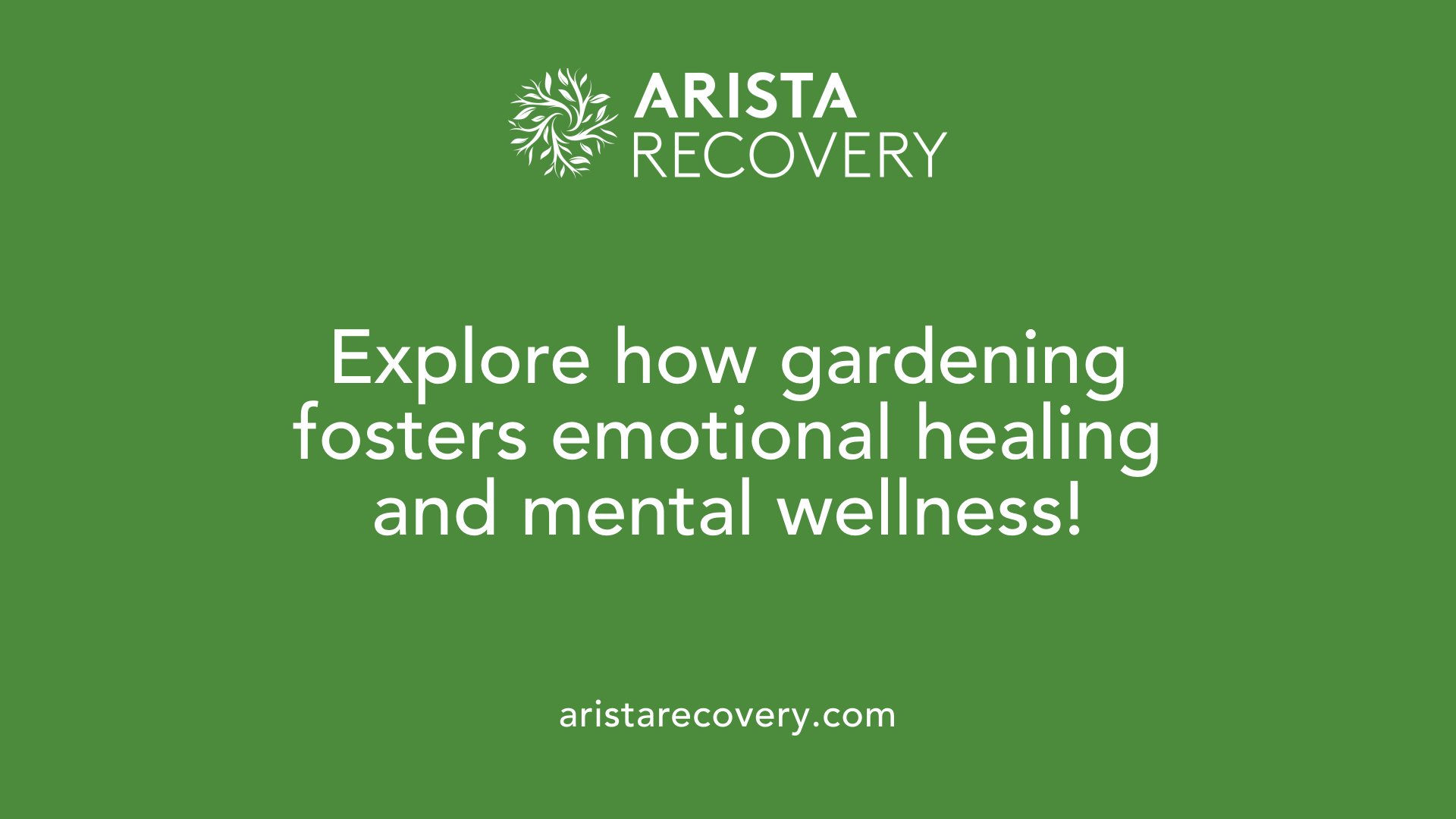
How does gardening support emotional healing and mental health improvement during recovery?
Gardening supports emotional healing and mental health improvement during recovery by creating a peaceful space that encourages reflection and reduces stress. Exposure to plants has been associated with lower levels of fear, anger, and sadness, while simultaneously promoting physical activity and social interaction, both of which are essential for overall well-being.
Therapeutic gardens have shown enhanced patient satisfaction and reduced stress in healthcare settings, significantly improving cognitive function, especially among the elderly. This environment nurtures emotional growth and resilience.
Horticultural therapy brings specific benefits such as pain reduction, improved attention, decreased anxiety, and heightened resilience—factors critical for individuals navigating recovery from addiction. Engaging in gardening fosters a sense of accomplishment, as witnessing the growth of plants offers tangible results that bolster self-esteem.
Additionally, gardening nurtures a healthier lifestyle, contributing positively to mental health outcomes. Here is a summary of the emotional and mental health benefits related to gardening:
| Benefit | Description | Impact on Recovery |
|---|---|---|
| Emotional Healing | Encourages reflection and reduces anxiety | Helps manage stress |
| Reduced Stress | Lowers cortisol levels and enhances relaxation | Minimizes triggers for relapse |
| Improved Self-Esteem | Tangible results from caring for plants | Boosts confidence and coping abilities |
| Enhanced Resilience | Fosters a sense of accomplishment and purpose | Aids in strengthening mental fortitude |
Overall, engaging in gardening not only enriches emotional well-being but also cultivates a nurturing environment where individuals can thrive, supporting their journey toward sobriety.
Enhancing Wellness with Gardening
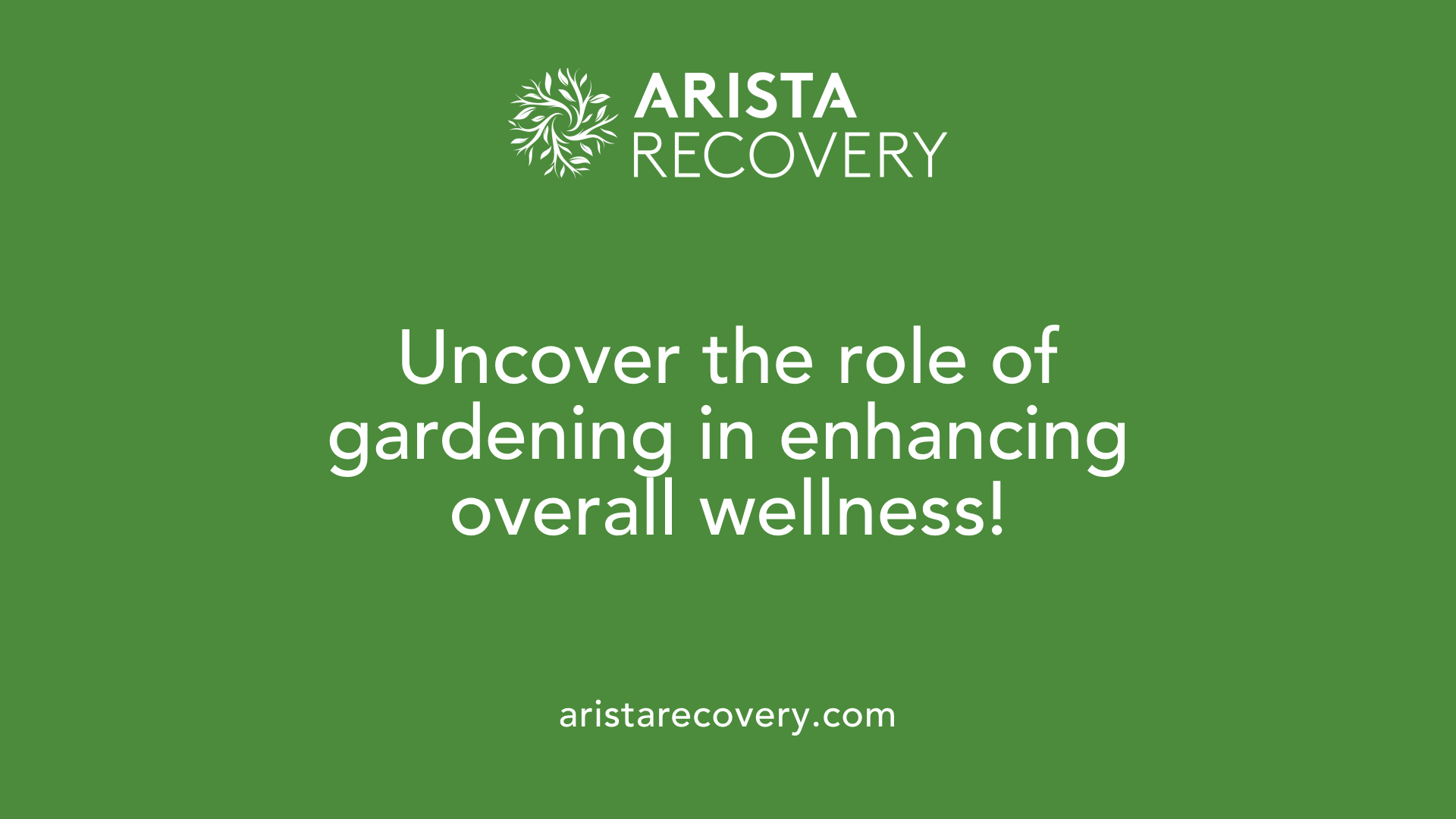
What role does gardening play in enhancing overall wellness during the recovery process?
Gardening plays a crucial role in enhancing overall wellness during the recovery process by promoting physical activity, mental engagement, and emotional healing. Research highlights that gardening can effectively reduce stress and anxiety while improving mood, which is essential for individuals in recovery.
Notable benefits include:
- Physical Activity: Engaging in gardening encourages exercise, which enhances fitness levels and releases endorphins, further boosting mood.
- Emotional Healing: The act of caring for plants provides purpose and can build self-esteem, giving individuals a sense of accomplishment as they witness tangible results from their efforts.
- Social Interaction: Group gardening fosters community building and emotional support, which are critical aspects of maintaining sobriety.
Therapeutic gardens, specifically, have historical significance in promoting healing environments and improving recovery outcomes. They serve as safe spaces for reflection and growth, making them valuable in recovery settings.
How do physical and emotional health benefits manifest through gardening?
The health benefits of gardening are multifaceted and significant for those in recovery. Physical benefits include improved muscle tone, lower blood pressure, and enhanced vitamin D levels from outdoor exposure.
Moreover, the emotional health benefits are profound:
- Reduction in symptoms of depression and anxiety through mindfulness and focus on the present task.
- Establishment of routines that promote personal growth while countering feelings of aimlessness.
- Development of coping skills as participants navigate challenges in the garden, mirroring their journey in recovery.
What is the role of therapeutic gardens in recovery?
Therapeutic gardens play a vital role in the recovery process by leveraging nature to encourage healing. These spaces provide an environment that fosters relaxation, reducing stress and anxiety levels common among individuals with addiction.
Engagement in these gardens can:
- Promote mindfulness, allowing individuals to become present and focused.
- Create opportunities for social interaction, reducing isolation and loneliness through shared activities.
- Encourage healthy habits, as participants can learn about sustainable practices and nutrition while enjoying fresh produce.
In summary, gardening not only serves as an effective therapeutic tool but also embodies a holistic approach to physical, emotional, and social healing during addiction recovery.
Practical Approaches for Recovery through Gardening
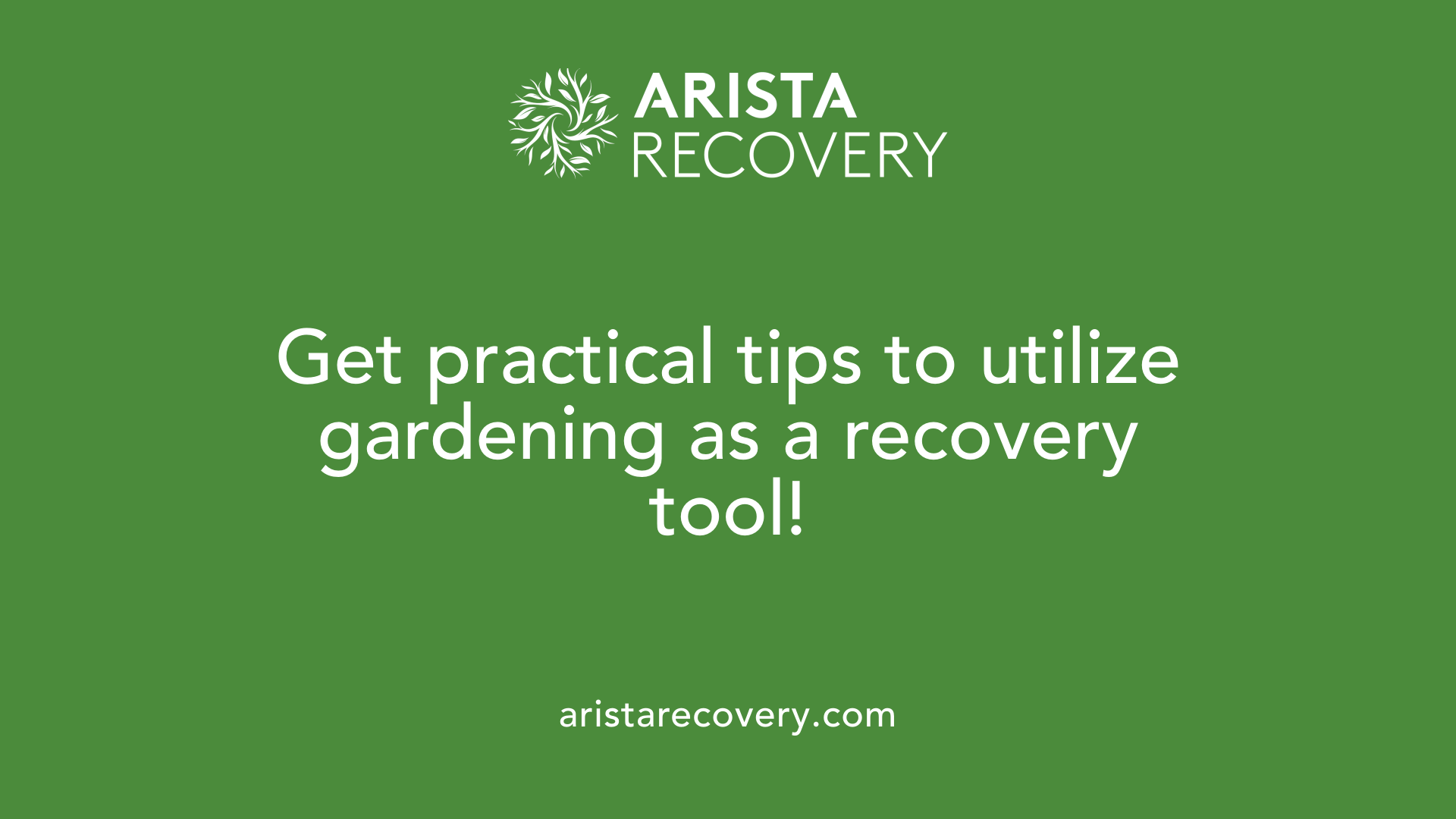
What are some practical tips for using gardening as a tool for recovery?
Gardening can serve as a powerful tool for recovery by providing a range of therapeutic benefits. Start with simple projects to build confidence and gradually take on more complex gardening tasks. This gradual approach allows individuals to experience early success, which helps foster motivation.
Engage all senses by selecting diverse plants, such as those in sensory gardens. Choosing herbs, vegetables, and flowers can create a rich tactile, aromatic, and visual experience that enhances emotional well-being. The Earl Lee Evans Sensory and Community Garden exemplifies how plants can cater to various sensory needs.
Setting achievable goals fosters a sense of accomplishment. For example, individuals can aim to grow a single herb or flower before expanding to larger plots. Responsibility for plants can build self-esteem and establish routine in daily life.
How do community and personal gardening serve as a support system?
Community gardens, like those run by the Colorado Coalition for the Homeless, play an essential role in promoting social interaction and belonging. They allow participants to connect with others, share gardening experiences, and build supportive networks.
Personal gardening can also provide a therapeutic retreat where individuals can focus on growth and relaxation. Engaging in these environments diminishes feelings of isolation, enhances mood, and facilitates personal reflection.
Why are achievable goals important in the gardening process?
Setting manageable goals in gardening is vital. They offer structure and purpose, helping recovering individuals navigate challenges. For instance, deciding to cultivate vegetables for a meal can instill a sense of pride and achievement.
Keeping expectations realistic helps prevent overwhelm. It's important to celebrate small victories, as these contribute to a greater sense of accomplishment. Remember to rest when needed; maintaining balance will help prevent stress or injury, ensuring a meaningful and restorative gardening experience.
The Social and Emotional Support of Community Gardening
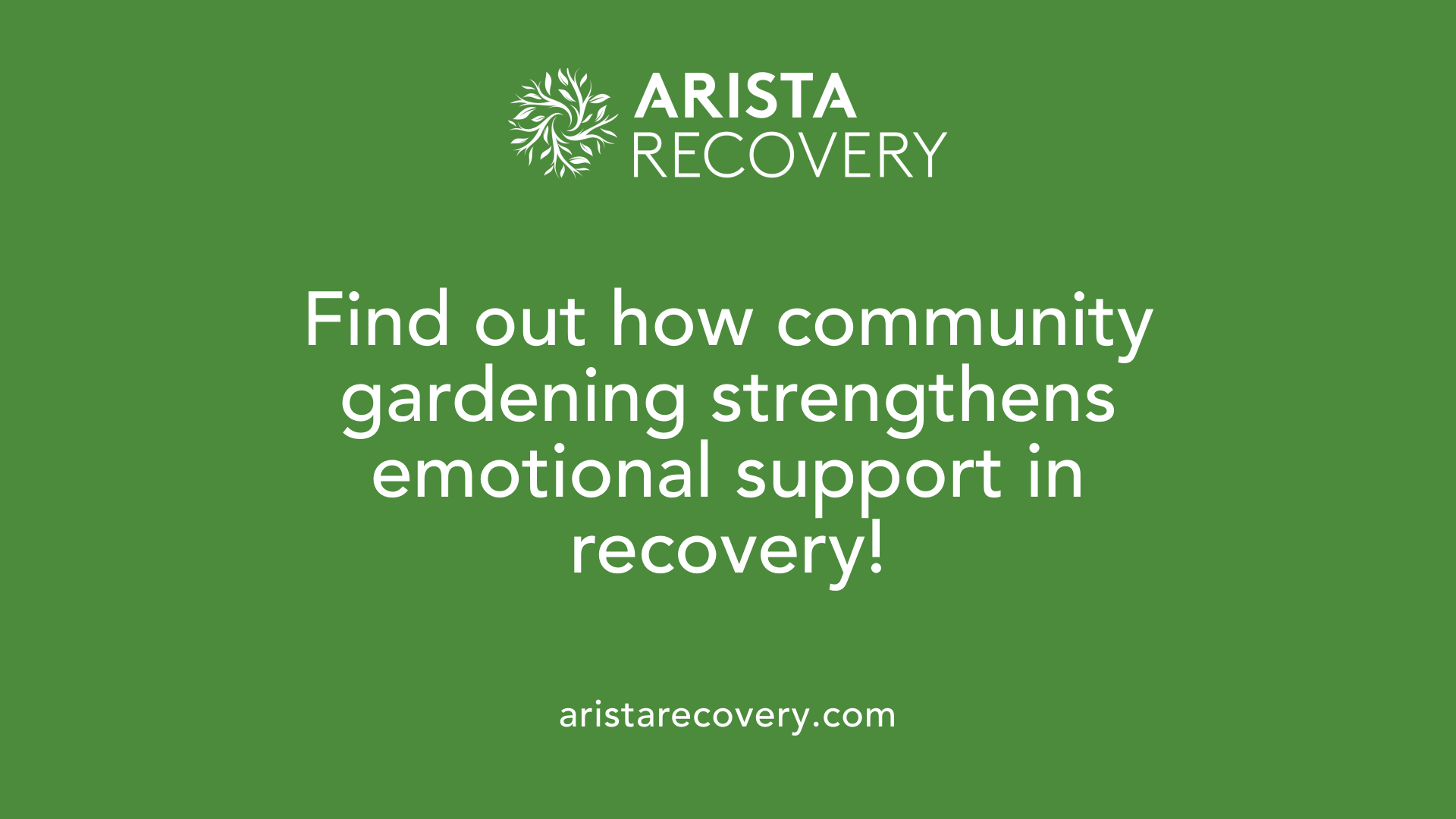
How does community involvement through gardening benefit emotional support during recovery?
Community involvement through gardening benefits emotional support during recovery by creating a nurturing environment where individuals can connect with others who share similar experiences. Participating in gardening activities promotes teamwork and collaboration, fostering friendships and mutual support, which can be vital during challenging times.
The act of nurturing plants and watching them grow can provide individuals with a sense of achievement and purpose. This fosters enhanced self-esteem and emotional well-being, important components in the recovery journey. Shared gardening experiences allow for open discussions about recovery, helping participants express their feelings and challenges in a supportive setting.
The role of communal gardens in recovery
Community gardens act as sanctuaries where recovering individuals can escape the stresses of life. These gardens enhance social interactions, as group activities draw people together, defeating the isolation that often accompanies addiction. The act of tending to a communal space cultivates responsibility, teamwork, and a sense of belonging.
Emotional support benefits of gardening
Beyond physical health, the emotional rewards of gardening are profound. Participants can share their journeys, provide encouragement, and celebrate small victories together. As they nurture plants, these individuals not only support their growth but also experience personal growth, forging connections that are central to the recovery process. Overall, community gardening serves as a vital therapeutic outlet, fostering resilience and emotional healing through social interaction and engagement.
Conclusion
The integration of gardening within addiction recovery programs offers a holistic approach that addresses both physical and psychological needs. By incorporating horticultural therapy, individuals can find healing, purpose, and community support—essential elements for a successful recovery journey. As more recovery centers embrace these green-studded endeavors, the path to sobriety becomes not only healthier but also considerably more vibrant and promising.
References
- Planting Seeds of Growth — Gardening and Addiction Recovery
- [PDF] Therapeutic Gardening For Addiction Recovery
- Gardening In Addiction Recovery - Substance Abuse & Rehab
- Relapse Prevention Techniques: 7 Ways Gardening Can Help Your ...
- 5 Ways Gardening Can Help Your Recovery
- Gardening for Addiction Recovery - Renaissance Ranch
- Get Things Growing: How Gardening Supports Your Sobriety

